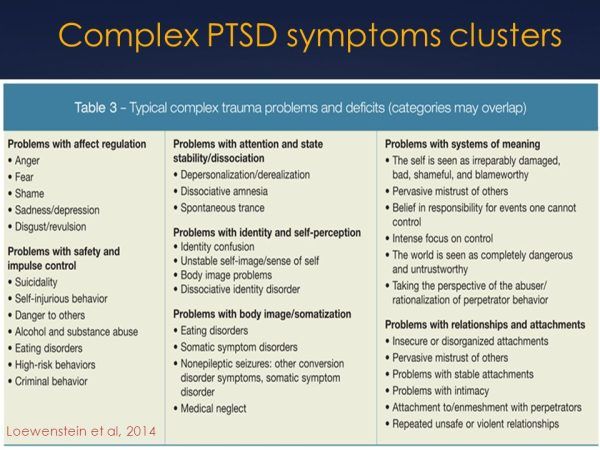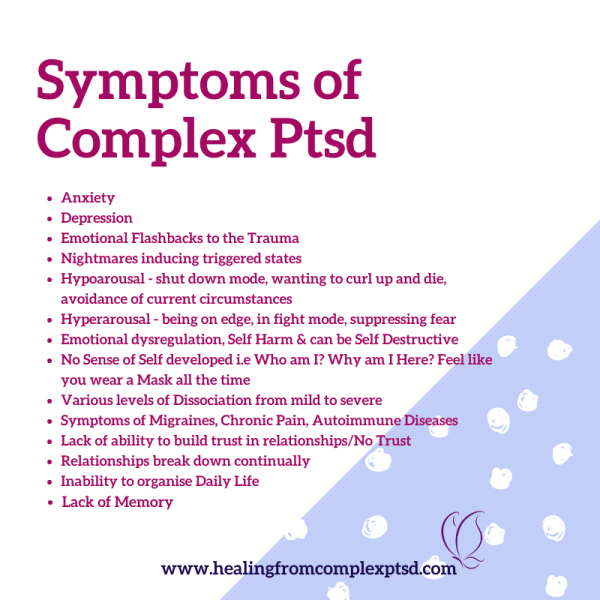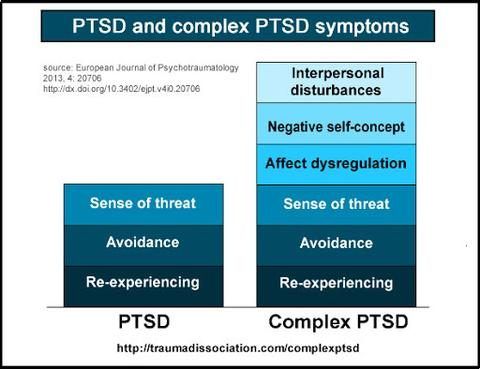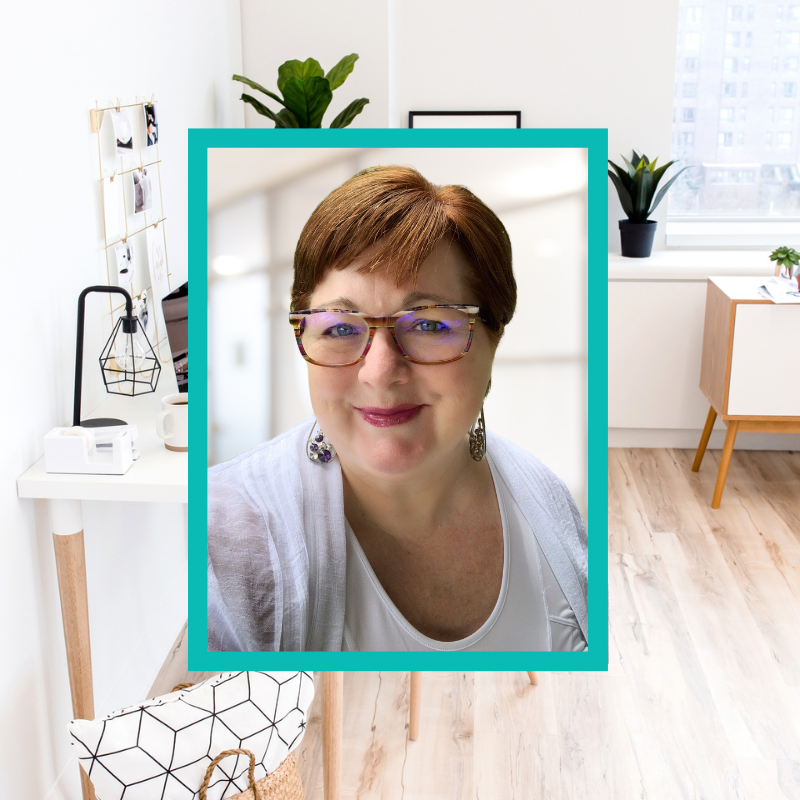What is Complex Ptsd?
This article was posted on our original blog at Healing from Complex ptsd, July 5th 2020.
What is Complex Ptsd?
What is Complex Ptsd? For me, it was like carrying around a ticking countdown clock just waiting for a precise moment to remove all of my mental health. To top it off, I didn't know this countdown clock existed.
Most of us don't realise this countdown clock exists, so we continue to pursue our life over the years, wondering why anxiety, depression and other illnesses seemingly appear out of nowhere. And for some of us the unknown ticking clock runs out of batteries and we literally lose our cognitive abilities and are unable to function.
Complex Ptsd, Complex Post Traumatic Stress Disorder, occurs after a child has parents/caretakers who are physically, emotionally, sexually and/or verbally abusive. The hardest part as an adult who grows up in this environment is coming to understand it's not normal. The next challenge is realising we've been busy doing life and busy also unconsciously numbing the past.
My GP was more shocked than I was when I told him I had Post Natal Depression. It took me 5 months to work up the courage to tell him. His first response was "what, you, no way!" and I immediately wondered "why not me?" When I listed all the symptoms he immediately knew I wasn't joking around. Especially because this was in the days when admitting you had a mental health problem wasn't the done thing.
A Psychological Wound
This chart details a lot of Complex Ptsd symptoms and underneath you'll find a chart of Complex Ptsd Symptoms I've put together to make it easy for us to identify with the symptoms. Both charts are included as the more information we have the sooner we can identify what is happening and how we can begin treatment.
From the chart below how many symptoms do you identify with?


The following table breaks down the differences between Ptsd and Complex Ptsd.

If Complex Ptsd is your diagnosis then please make sure your Therapist or Trauma Recovery Coach is able to work effectively with you and help you recover effectively. Too many people are spending years, decades in Therapy when there is more effective help available today for Complex Ptsd recovery. Feel welcome to check out the Coaching FAQs page for some answers Coaching FAQs
Courses
Let's Create Generational Change Together
To support this goal, Healing from Complex PTSD allows you to:
- Access professional education and business support from industry leaders
- Learn a results-driven approach to CPtsd recovery
- Discover a full library of ready-to-use tools and resources
Developmental Trauma Self-Check
Over the past 12 months, how many and how often have you noticed:
-
I work hard to hold it together in public, then crash in private.
-
I struggle to name what I feel until it overloads me.
-
I say yes to keep the peace, then feel resentful or empty.
-
I feel loyal to people who do not treat me well.
-
I lose time or feel foggy when stressed.
-
I avoid closeness or over-attach quickly, then panic.
-
I find it hard to trust my own judgement.
-
I feel shame when I try to set boundaries.
-
I need external approval to feel steady.
-
I push through fatigue instead of pausing.
How to use this:
0–3 items often: you may be using a few survival patterns.
4–7 items often: consider paced support to rebuild safety and choice.
8–10 items often: a trauma-trained professional can help you restore stability and connection.
Brain Impact Self-Check
Over the past 12 months, how often have you noticed:
-
My mind jumps to what could go wrong, even in safe moments.
-
I find it hard to remember recent details when I am stressed.
-
Decisions feel risky, so I delay or avoid them.
-
I forget good experiences quickly and dwell on the bad.
-
I feel numb or overwhelmed, with little in-between.
-
I lose words when emotions rise.
-
I misread neutral faces or tones as negative.
-
I struggle to notice body signals like hunger, tension or breath.
-
I do better when someone I trust is nearby.
-
I feel different “versions” of me in different settings.
How to use this:
0–3 often: some protective habits; gentle self-care may help.
4–7 often: consider trauma-trained coaching to build daily brain skills.
8–10 often: a paced, brain-based plan can restore clarity, memory and confidence.
For formal assessment, use recognised measures:
-
ACE-IQ or ACE-10 for adversity history (education only on public pages).
-
ITQ (International Trauma Questionnaire) for ICD-11 PTSD/Complex PTSD.
-
DERS for emotion regulation, DES-II for dissociation, PCL-5 for PTSD symptoms.
-
PHQ-9, GAD-7 for mood and anxiety; OSSS-3 for social support.

